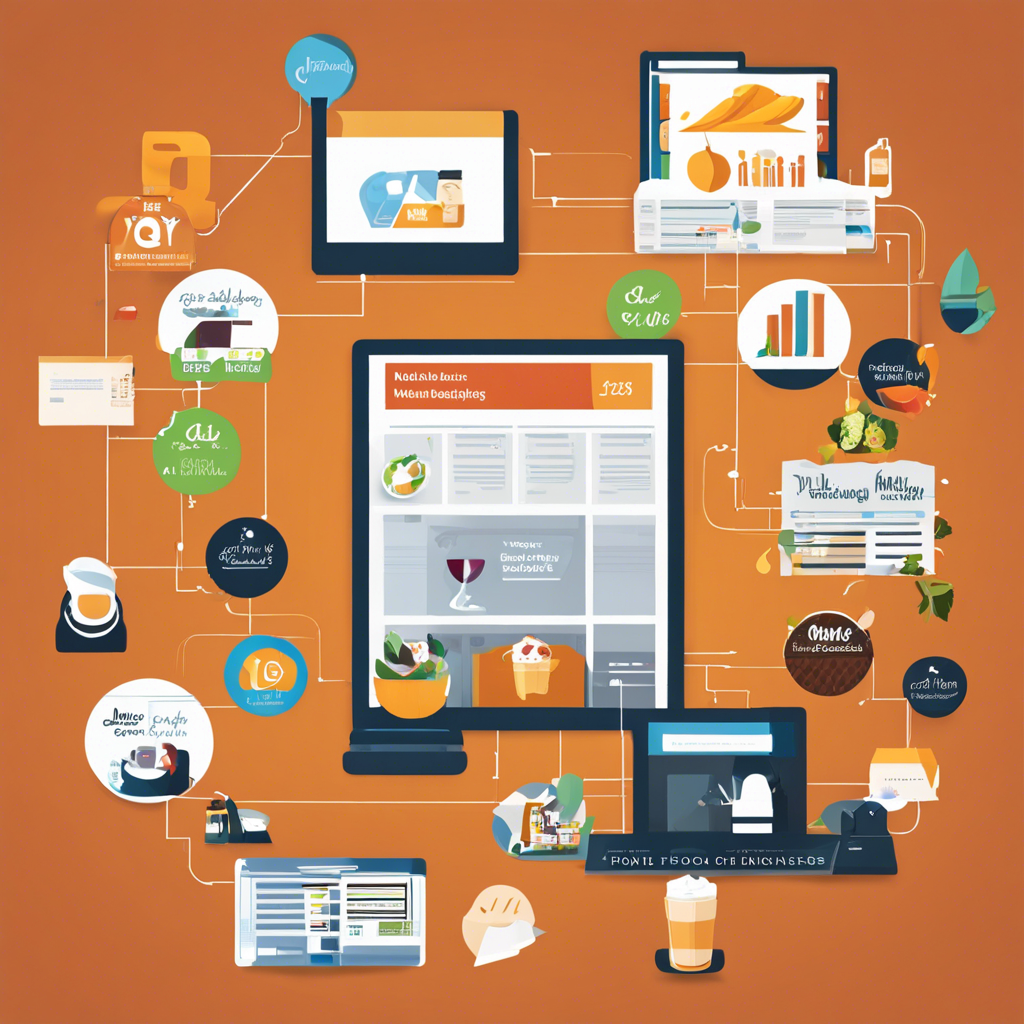In the ever-evolving landscape of the food and beverage industry, staying ahead of the game is crucial. With the advent of digital technology, businesses are leveraging the power of digital marketing to engage with customers, boost brand awareness, and increase sales. This article delves into the effectiveness of digital marketing strategies in the food and beverage sector, providing insights into the tactics that resonate with modern consumers.
The Digital Revolution in Food Marketing
The food and beverage industry is undergoing a digital transformation, and businesses are embracing this change to enhance their marketing efforts. With the rise of social media and online platforms, reaching target audiences has become more accessible and cost-effective.
Digital marketing offers a vast array of tools and techniques to engage customers. From captivating social media campaigns to personalized email marketing, the possibilities are endless. Let’s explore some of the strategies that have proven successful in this sector.
Social Media Engagement
Social media platforms have become the go-to channel for food and beverage brands to connect with their audience. A well-crafted social media presence can boost sales, build brand loyalty, and create a community around your products. Here’s how:
Influencer Partnerships
Collaborating with social media influencers can significantly impact your brand’s reach and credibility. These influencers have dedicated followings, and their recommendations carry weight. Partnering with them to promote your products can result in increased awareness and sales. For instance, a food blogger showcasing your restaurant’s specialty dishes or a YouTube influencer creating a cooking tutorial using your brand’s ingredients.
User-Generated Content
Encouraging customers to share their experiences with your brand is a powerful marketing technique. User-generated content, such as photos of your food or videos of customers enjoying your products, adds authenticity to your marketing efforts. Reposting this content on your brand’s social media pages can create a sense of community and encourage others to try your offerings.
Example:
Starbucks’ #WhiteCupContest encouraged customers to customize their white cups and share their creations on social media. This campaign not only engaged customers but also generated a vast amount of user-generated content, fostering a strong online community.
Email Marketing Strategies
Email marketing remains a powerful tool for building customer relationships and increasing brand loyalty. Here’s how food and beverage businesses can utilize it effectively:
- Welcome Series: Send a series of emails to new subscribers, introducing your brand and offering exclusive discounts. This tactic helps build a connection with new customers.
- Personalization: Use customer data to create personalized emails. For example, recommending recipes based on previous purchases or sending birthday greetings with a special offer.
- Newsletters: Regularly send newsletters with updates, special offers, and industry news. This keeps your brand top of mind and provides value to your customers.
Real-Life Success Stories
Digital marketing success stories abound in the food and beverage industry, showcasing the transformative power of online strategies. Here are a few notable examples:
Q&A: Common Questions Answered
What are some challenges of digital marketing in this sector?
Online marketing in the food and beverage industry has its share of challenges. One significant issue is the highly competitive nature of the industry, making it hard for brands to stand out. Additionally, keeping up with the latest digital trends and platforms can be demanding, requiring dedicated resources and expertise.
How can small businesses compete with larger chains?
Small businesses can effectively compete by focusing on niche marketing. Identifying a specific target audience and catering to their unique needs sets you apart. Utilize local influencers, personalized email campaigns, and unique, shareable experiences to create a dedicated following.
Conclusion
Digital marketing is a powerful tool for food and beverage businesses to thrive in a competitive market. By understanding the strategies that resonate with modern consumers, brands can effectively engage their target audience. From social media campaigns to personalized email marketing, the key to success lies in creating authentic connections and providing value to customers. Embracing the digital revolution can propel your business to new heights in the ever-evolving food and beverage industry.
**External Links:**
1. Social Media Marketing in the Food Industry
2. Digital Marketing in the Food and Beverage Industry
3. Restaurant Digital Marketing: Strategies and Trends
